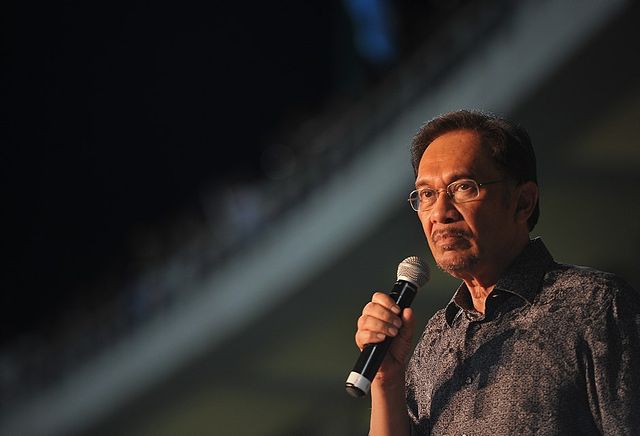
WASHINGTON—Malaysian opposition leader Anwar Ibrahim told The Associated Press on Friday he’s confident of acquittal in his sodomy trial, so long as the Southeast Asian nation’s top court demonstrates independence.
Anwar spoke by phone from New York as he rounded off a brief speaking tour at U.S. universities. Although on bail, he was allowed to travel from Malaysia, where a verdict is pending in his appeal against a five-year sentence handed down in March that would also see him banned from politics.
A guilty verdict could weaken the opposition coalition he leads, but it could also create a wave of public anger against the government, which has been led by the same party for nearly six decades.
Anwar was previously imprisoned for six years on similar charges in the Muslim majority country after he was ousted as deputy prime minister in 1998. That sodomy conviction, involving his former family driver, was subsequently quashed.
Critics and human rights activists say the latest case, involving a male aide of Anwar’s, is another salvo in a long-running campaign by the government to smear and silence its most potent threat. His treatment has drawn concern from the U.S. and other Western governments.
Anwar, however, said he’s not tempted to stay in America.
“I have given this some thought and discussed with my family, but I think I have no option but to return,” the 67-year-old politician said. “I have been in this struggle for a long time. I’m committed to the country, to the reform agenda.”
“It’s not easy because of my age and my back condition. I’m not as strong as I was in my 20s or in my 50s when I spent six years in solitary confinement,” he said. “But we have to continue the battle for democracy, and the fight against racism and religious bigotry.”
Prime Minister Najib Razak’s party has ruled Malaysia since independence in 1957—a period of relative stability and prosperity in the moderate Muslim country. But Najib faces declining support, and activists say government intolerance of religious and ethnic minorities is rising. Anwar’s opposition alliance won the popular vote in 2013 elections but didn’t win enough seats to form a government.
State prosecutors and the government deny the case against Anwar is politically motivated. Sodomy, even consensual, is a crime in Malaysia under a colonial-era law that is rarely applied.
This April, President Barack Obama became the first American president in nearly 50 years to visit Malaysia. He raised with Najib concern over Anwar’s treatment, but human rights groups criticized the president for not meeting the opposition leader. National security adviser Susan Rice did instead.
Anwar said he had not requested a meeting with senior officials of the Obama administration this week. He spoke at Stanford University in California and Georgetown University in Washington.
Anwar said U.S. diplomats monitor his trial in Malaysia, “so there isn’t much more for me to explain.”
“To my mind, my case is very strong in respect of the law, but I don’t know to what extent the supreme court can be truly independent. If it’s independent I have no qualms whatsoever,” he said.